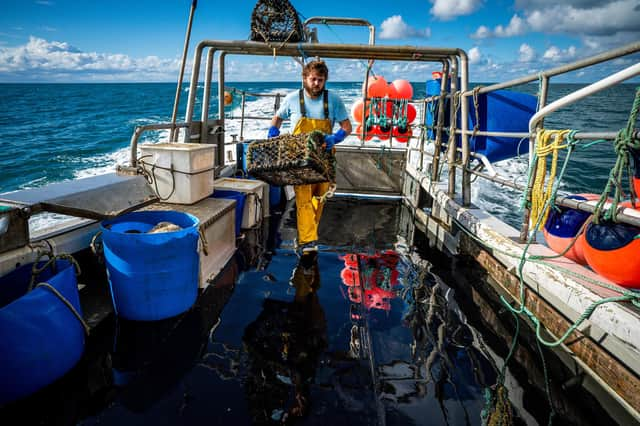Highly protected marine areas: Scottish Government must rethink speed and scale of its plans – Scotsman comment


And, amid a breakdown in SNP discipline, they could spark a rebellion in the Scottish Parliament tomorrow, when MSPs will be asked to vote on a motion, brought by the Scottish Conservatives, calling for the Scottish Government to “fundamentally reconsider its HPMAs proposals and the timeframe for their introduction”.
Rachael Hamilton, the Scots Tories’ rural affairs spokesperson, condemned the current proposals as “deeply damaging” for fishing communities, urging politicians of all parties to “stand up for our fishermen and coastal communities against these plans, which have been designed without any scientific basis”.
Advertisement
Hide AdAdvertisement
Hide AdThere are echoes here of the deposit return scheme. The idea of increasing recycling of bottles and cans is a good one, but poor planning turned the Scottish Government’s scheme into a fiasco that eventually forced a significant delay.
In March, after nearly 20 years of discussion, 193 countries agreed to a new High Seas Treaty which will protect 30 per cent of the ocean by 2030. The UK Government also recently announced the creation of three HPMAs in English waters. So, it is internationally accepted that the world needs to do more to look after the marine environment, and there is cross-party support for HPMAs in Britain.
However, the process by which this is achieved needs to be carefully managed. Dramatic changes that threaten people’s livelihoods will only create a public backlash that puts the whole endeavour at risk.
Furthermore, it should be recognised that Scotland's fishing industry has an understanding of the need to sustainably exploit the bounty of its waters, so their views should be given greater weight. At the moment, it appears that HPMAs are to be forced upon them from on high, with little regard for their expertise or the effect on the rural economy.
Conservationists have complained that the UK Government’s first HPMAs will cover just 0.5 per cent of English seas, and it’s possible they are going too slowly. But the plans to cover ten per cent of Scottish waters by 2026 feels like the Scottish Government is trying to go too fast, and yet another ill-considered policy is heading for a crash.
Comments
Want to join the conversation? Please or to comment on this article.